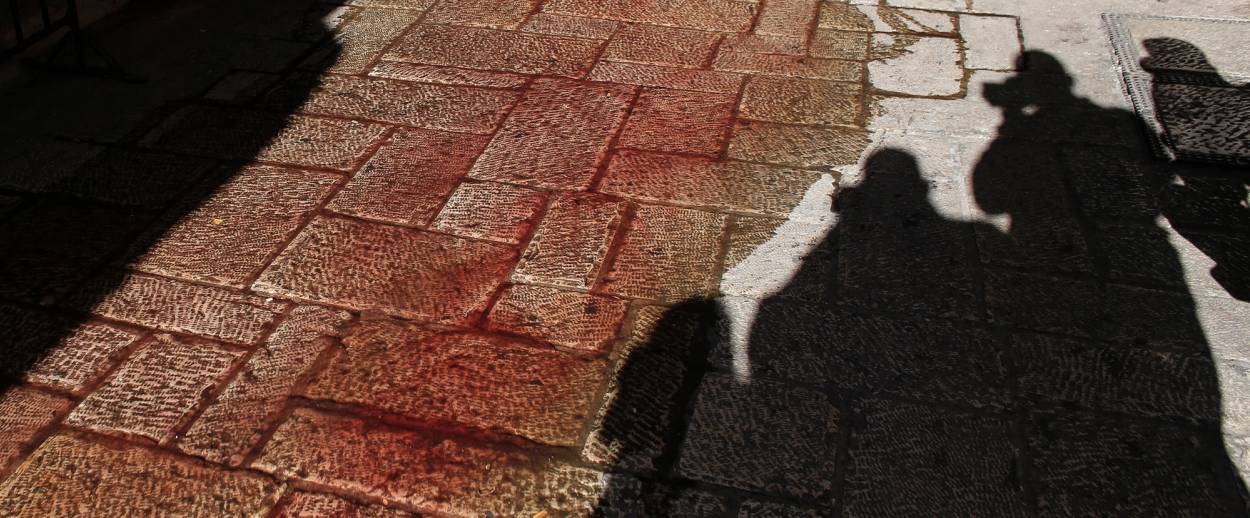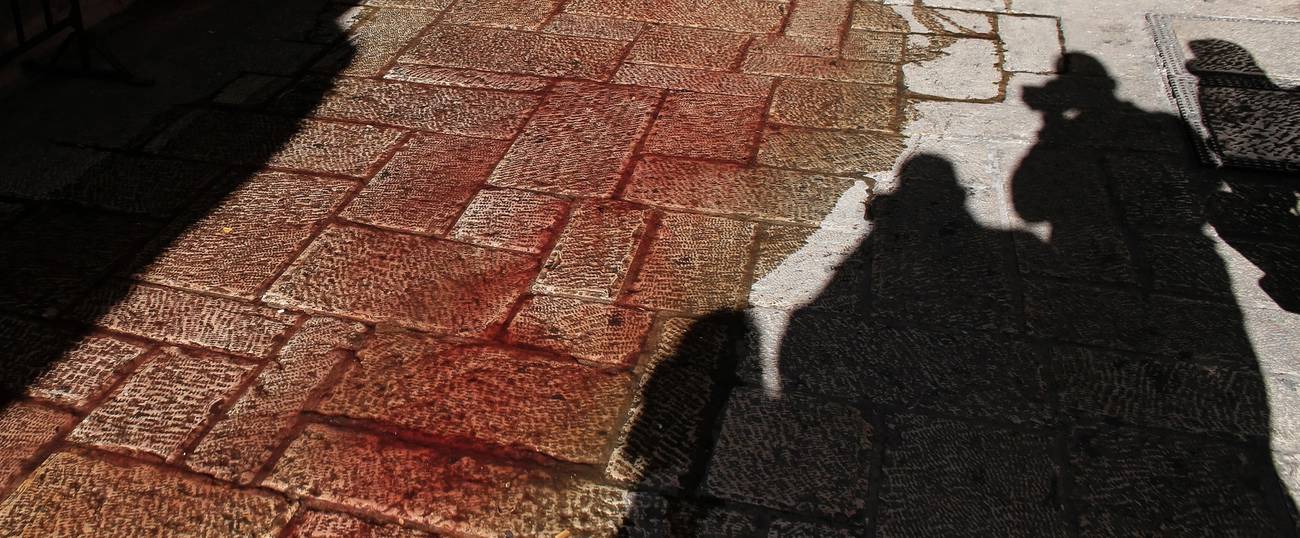How To Stop Mass Casualty Terror Attacks: Take Violence Against Jews Seriously
The Brussels Jewish Museum shooter was connected to the mastermind of the Paris attacks. Meir Kahane’s assassin was funded by Bin Laden. Let’s start connecting the dots.




On May 24, 2014, a man wearing a dark baseball cap and carrying several bags walked into the Jewish Museum of Belgium, in the center of Brussels. It was 10 minutes to four. The man pulled out an AK-47 and started shooting. Ninety seconds later, three museum visitors were dead; a fourth, critically injured in the attack, would later die of his wounds. The shooter managed to escape on foot and was captured six days later, after a nationwide manhunt. He was revealed to be Mehdi Nemmouche, a 29-year-old French national who had traveled to Syria and served as a jailer for the Islamic State. When arrested, he was carrying a bag containing a Kalashnikov, a .38, cameras, a gas mask, and about 330 rounds of ammunition.
Nemmouche, we now know, wasn’t working alone. He was part of a network run by his friend Abdelhamid Abaaoud, a Belgian who had traveled to Syria and became an IS “Emir of War” in the Deir Ezzour province. Like Nemmouche, Abaaoud, too, returned to Europe with the intention of pursuing jihad. His efforts were more successful than his disciple’s, leaving 130 people dead in a series of attacks in Paris on Nov. 13.
Could Abaaoud have been stopped? Would a more aggressive investigation of Nemmouche have led to his operator and saved the lives of all those slain in the 11th arrondisement? It’s hard to tell for certain without access to the investigation’s files, but if you’re pondering the mindset of the Belgian authorities, consider the following statement by the country’s Justice Minister Koen Geens. The Paris attacks, Geens said a few days after the massacre there, proved that terrorists were now after different targets: “It’s no longer synagogues or the Jewish museums,” he said, “it’s mass gatherings and public places.”
You don’t have to be Hercule Poirot to realize that a justice system headed by a man who doesn’t consider synagogue attendance as a gathering or Jewish museums as public places isn’t going to try especially hard to pursue justice when the victims are Jews. A year after the shooting in the Jewish Museum, Brussels was on an unprecedented four-day lock down following the shootings in Paris, with many of the suspects traced back to the same neighborhood and the same network that spawned Nemmouche.
And the Belgians are hardly alone. On Nov. 5, 1990, the Israeli rabbi and politician Meir Kahane finished a speech in the Marriott East Side hotel in Manhattan. He stepped off stage shortly after 9 p.m., surrounded by well-wishers and supporters. A man disguised as an Orthodox Jew emerged from the crowd, drew a .357 caliber pistol, and shot Kahane from close range, killing him. He was revealed to be El Sayyid Nosair, an Egyptian-born American citizen living in Jersey City.
Nosair, authorities soon learned, wasn’t working alone. He was part of a network run by Omar Abdel-Rahman, known as the Blind Sheik. So great was the jury’s contempt for Kahane, that they acquitted Nosair of murder and convicted him only of assault and possession of an illegal firearm, a decision that the trial’s judge, Justice Alvin Schlesinger, lamented went “against the overwhelming weight of evidence and was devoid of common sense and logic.” Nosair’s legal defense was paid by a wealthy supporter of Abdel-Rahman, one Osama Bin Laden. Three years later, several of Abdel-Rahman’s other disciples were arrested for attempting to blow up the World Trade Center.
Could Abdel-Rahman have been stopped? Would a more aggressive investigation of Nosair have led to his operator and curtailed not only the first attempt on the World Trade Center but also the second, and tragically successful one, on Sept. 11, 2001? And, more importantly, have we the mindset necessary to prevent the next attack?
Again, quotes may be the most useful signposts we have. In the aftermath of the Nov. 13 shootings in Paris, Secretary of State John Kerry compared them to the attack, earlier this year, on Charlie Hebdo. “There’s something different about what happened from Charlie Hebdo, and I think everybody would feel that,” Kerry said. “There was a sort of particularized focus and perhaps even a legitimacy in terms of—not a legitimacy, but a rationale that you could attach yourself to somehow and say, OK, they’re really angry because of this and that.”
We’ve seen this logic in play too often. It’s the logic of deluded men and women who are trying to organize a chaotic world into rational patterns and who are therefore willing to accept the indiscriminate slaughtering of Jews as somehow understandable, the consequence of some ancient blood feud having to do with a land and a faith far removed from the daily realities of most well-heeled westerners. To that crowd, the murder of a Jew is deplorable but rarely surprising; real shock is expressed only when the very same terrorists, literally speaking, who have orchestrated the killing of Jews turn their guns on other Belgians or Parisians or New Yorkers.
To the many—in government, in the media, in academia—who still hold this morally repugnant worldview, to those who endanger the well-being of us all by failing to seriously investigate and prosecute attacks on Jews because these can somehow be explained away by some imaginary rationale, it’s time to say no more. Understand this: The very same people who are coming for the Jews will soon come for you, too.
Every father who is killed on a road in the West Bank in front of his children, every old man who is stabbed in Jerusalem with a pair of scissors, will be killed again in Paris, in Hanover, in Washington. Terror doesn’t know any national boundaries. It doesn’t care about anyone’s religion. It couldn’t care less about the nuances of Israeli-Palestinian peace negotiations. Terror is a technique for attaining power, and it has its own logic, which is the logic of indiscriminate death. Jews are merely this demented logic’s first victims, but they are not, by a long shot, its last.
***
Like this article? Sign up for our Daily Digest to get Tablet Magazine’s new content in your inbox each morning.
Liel Leibovitz is editor-at-large for Tablet Magazine and a host of its weekly culture podcast Unorthodox and daily Talmud podcast Take One. He is the editor of Zionism: The Tablet Guide.